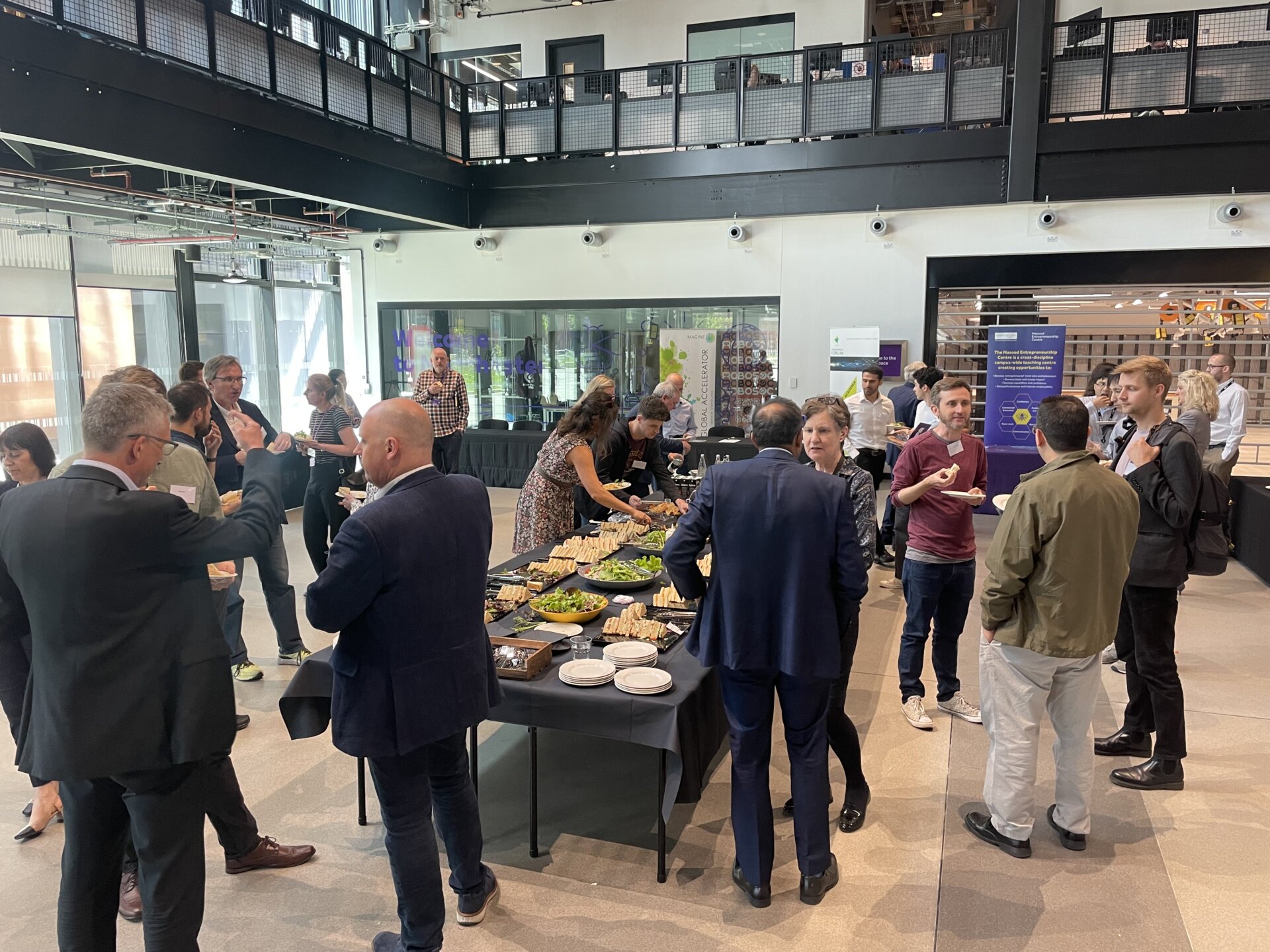Demystifying the frightening move from the lab to commercialisation
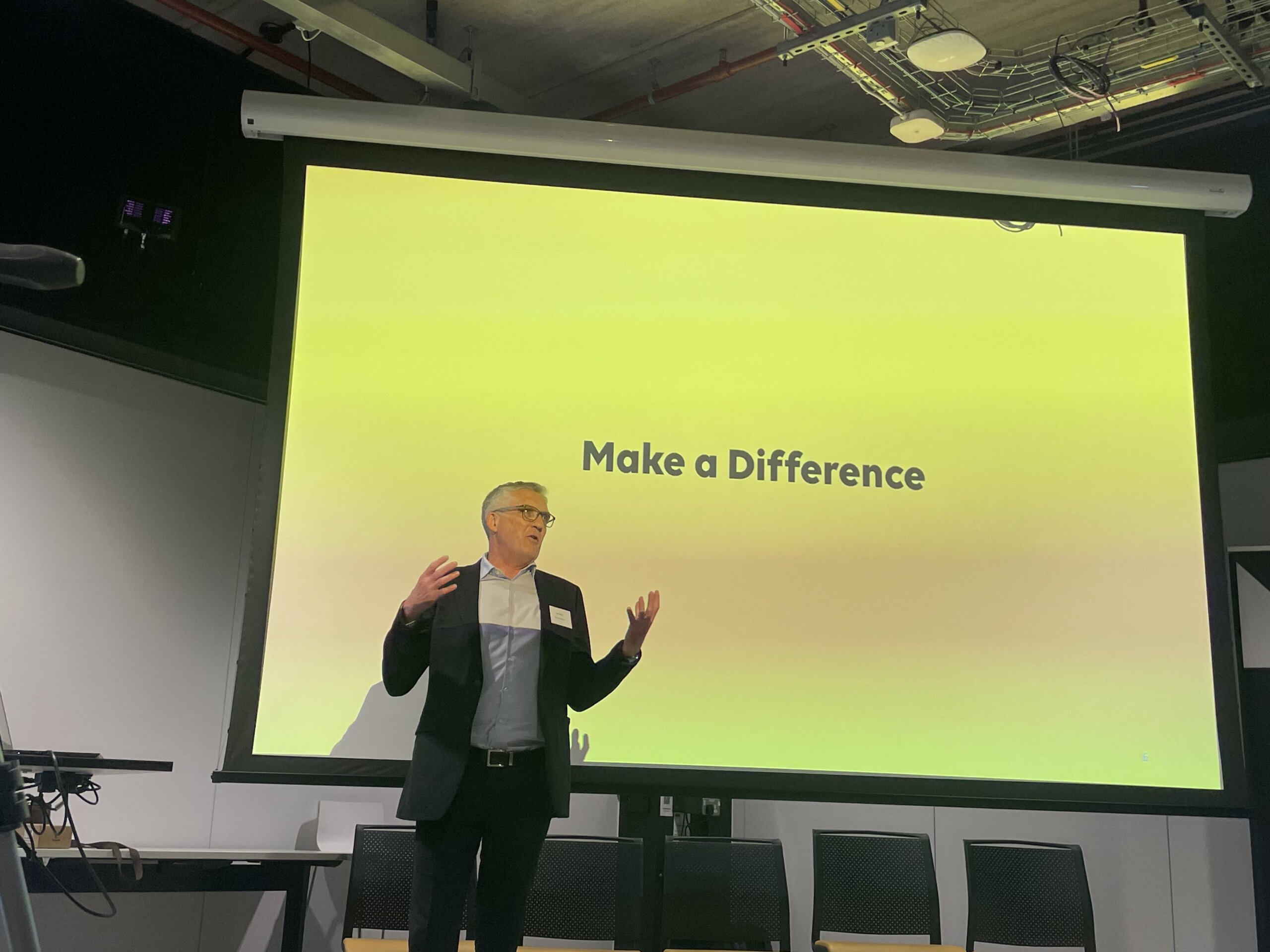
Peter Bulkley, Head of Business Analytics presents at the FSE Innovation Academy Day
On Wednesday 24th May, together with Aline Miller (Associate Dean for Business Engagement & Innovation in FSE), we held an eye-opening, myth-busting event for the Faculty of Science and Engineering (FSE) at the wonderful Engineering Building A. The FSE Innovation Academy Day welcomed a panel of spinout founders, a patent attorney, entrepreneurial supporters, investors and more to speak to academics from the FSE on the journey from research to commercialisation.
The event was introduced by Luke Georghiou, Deputy President and Deputy Vice-Chancellor at the University of Manchester. He spoke about how Manchester and its University are at peak health for supporting start-ups and facilitating licences, with resources such as ID Manchester, the Masood Entrepeneurship Centre, Northern Gritstoneand the Innovation Factory working collaboratively to nurture this translational research in order to create real world impact.
He was followed by Aline Miller who demonstrated (with a very wiggly line!) that the journey from idea to market is not linear, but actually an intricate journey of back and forth between concept, solution, market and then, if you’re lucky, scaling up. It is a process of adaptation and improvement which requires flexibility and an open mind.
Our panel of spinouts comprised of Sebastian Leaper (Watercycle Technologies), Raymond Gibbs (Molymem), Phil Martin (Combifluor) and James Winterburn (Holiferm). Each speaker had their own valuable advice, whether it be to play to your strengths, be flexible, don’t be afraid to make big decisions, and to take time recruiting your key players. A key message was that the success of commercialising is as much about the people as it is the project.
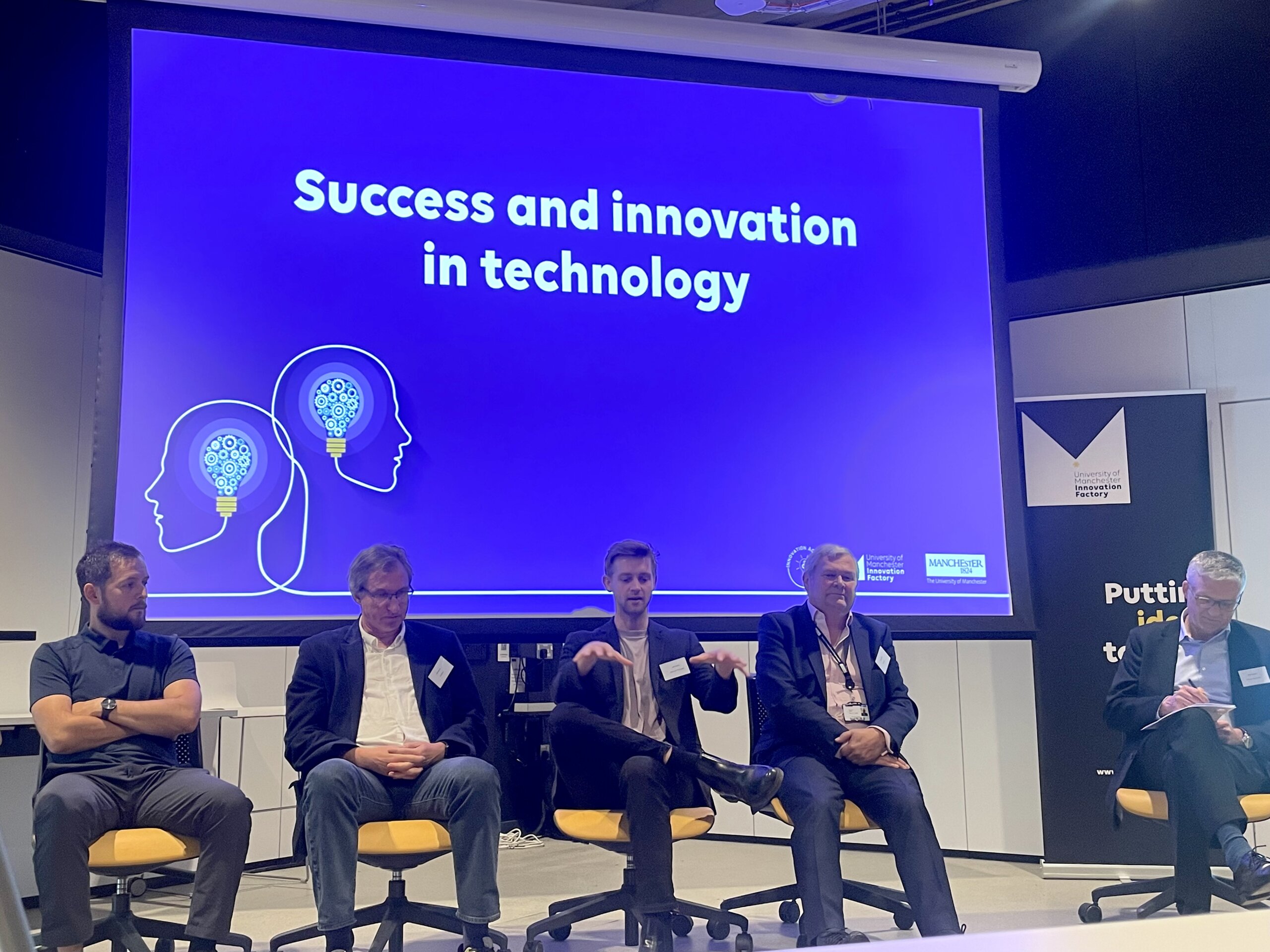
Sebastian Leaper, who has enjoyed many successes with his spinout commented:
“The commercialisation of research can be a long and, at times, challenging road. However, the prospect of turning your ideas into a reality that can have a meaningful impact on the world makes it well worth it. In addition, the very act of trying to commercialise makes you a better researcher or entrepreneur and gives you skills that are applicable anywhere.”
Peter Bulkley, our Head of Business Analytics talked us through the process from disclosure to commercialisation at the Innovation Factory (whether it be a spinout or license). He highlighted the support services available at the Innovation Factory and how to access funding to move your research through the Technology Readiness Levels (TLRLs) such asIAA, IWI, Pathfinder, PoP (Proof of Principle).
Laura Etchells and Tony Walker continued the conversation on funding and entrepreneurial support available, this time through the Masood Entrepreneurship Centre (MEC) and Innovate UK – the programme which guides researchers through the process of refining and validating commercial potential. Laura offered support on building a ‘business mindset’ and shared the programmes available at the MEC such as Researcher 2 Innovator, Venture Further Awards and ICURe.
Tony Walker (‘Head of Hub’ in the North) manages the ICURe programme, which is open to any researchers, under any discipline, in any region. It’s a pre-accelerator programme for researchers designed to help explore the commercial application and potential of UK research. You can find the current cohorts available for application here.
Of course, an important part of commercialising your idea is protecting it from theft, which is why we invited Pawel Piotrowicz, a patent attorney from Venner Shipley to speak to us about the what, how and when of Intellectual Property Rights (IPRs). Pawel told us how IPRs, such as patents, are the tools with which we protect our research, so that we can confidently commercialise without risk, and gain the trust of investors through achieved patents. If you have any questions relating to Intellectual Property Rights, please get in touch.
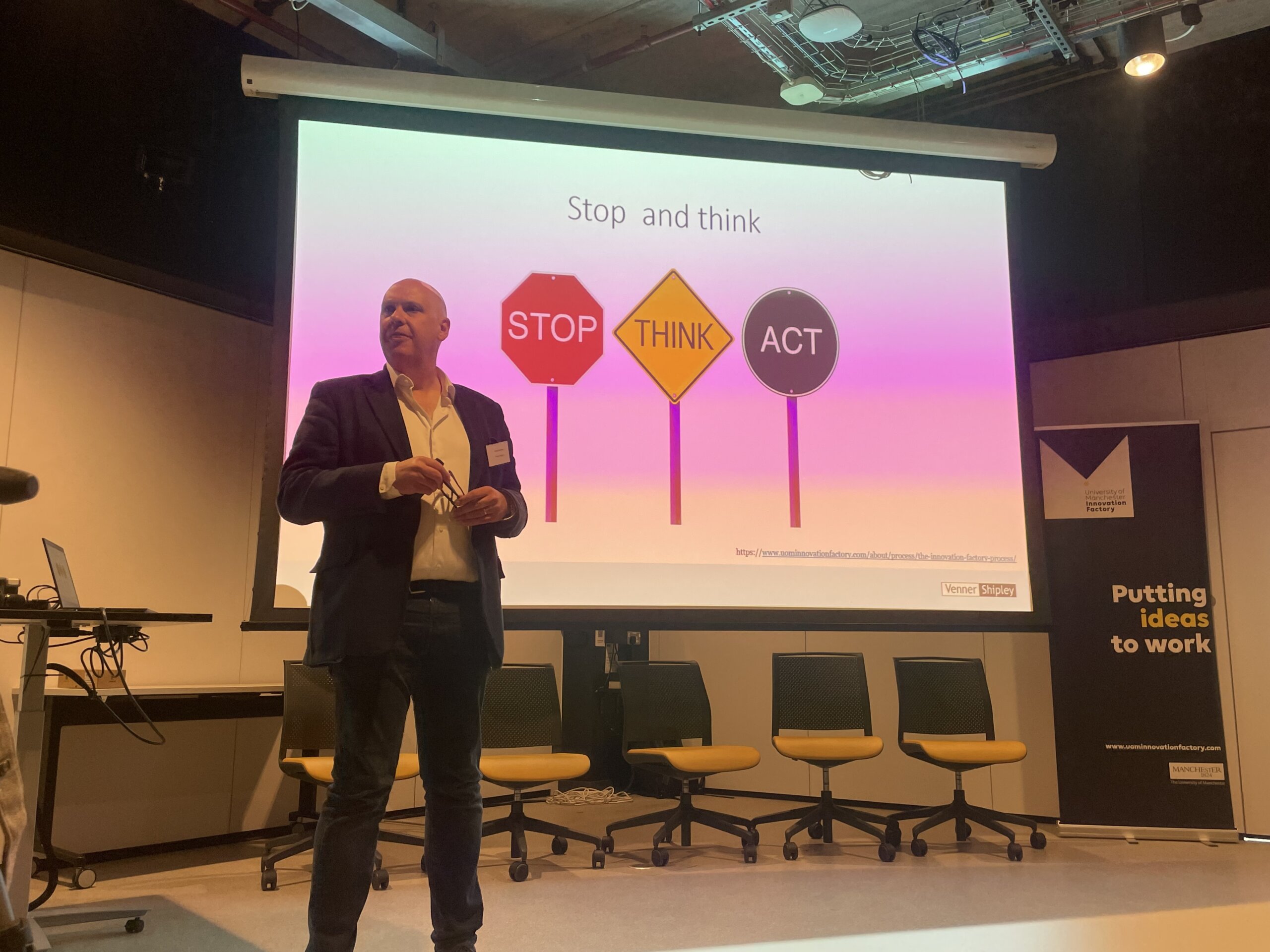
Pawel Piotrowicz of Venner Shipley talks to us about intellectual property rights.
We also enjoyed some sound advice from a panel of 4 investors from different sector perspectives. Key points were:
- Work with your skillset – you don’t have to be the CEO!
- Be flexible and listen to advice
- Don’t take rejection personally – and make sure to get feedback.
- Apply to iCURE! (most spinouts they have worked with have gone through this process)
- Keep your proposal simple (No jargon or acronyms)
- Know your market and have a USP!
- Don’t feel you need a polished deck before contacting investors- call them and have a conversation!
- Think about what else the investor can offer you aside from funding (contacts & connections).
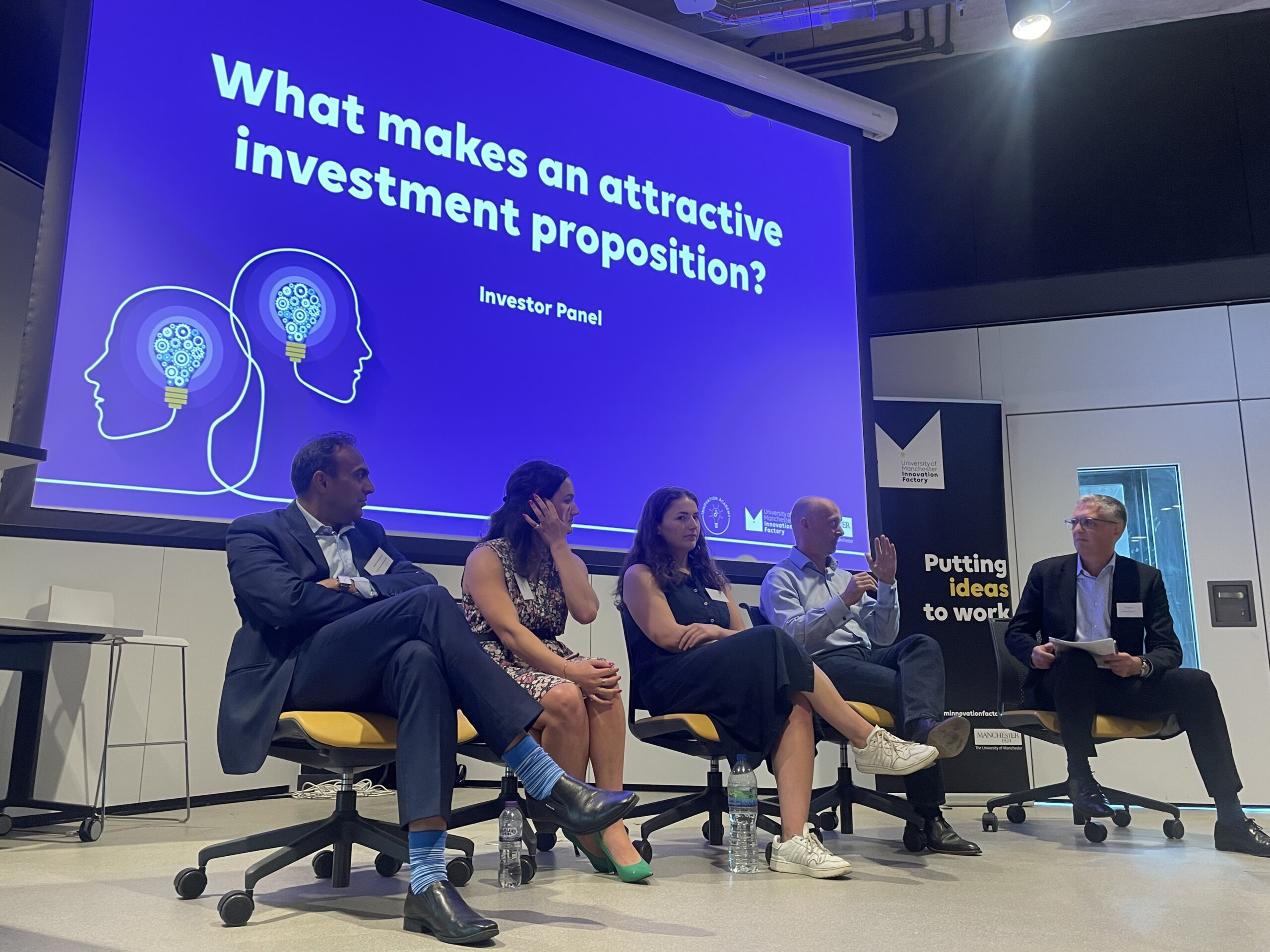
Our investor panel offers some sound advice. From left to right, Ashwin Kumaraswarmy (Mercia Asset Management), Sarah Ayton (The Growth Company), Emma Cassidy (DSW Ventures) and Mark Wyatt (Northern Gritstone). Peter Bulkley (Innovation Academy) sits far right.
Mark Wyatt of Northern Gritstone said
“The North of England is home to some of the world’s most innovative science-led businesses and Manchester-based Imperagen, Re-Course AI and Silveray highlight the breadth of activity, ground-breaking nature and world-class quality of research and innovation taking place in the ecosystem that we are focused on backing and helping to scale. To ensure that these businesses and others like them succeed, they need to be able to draw on capital and support which takes a long-term view of value creation.
That’s why Northern Gritstone exists – to be part of the solution to generational challenges – and this is where we’ll be focusing our resources over the coming months and years as we grow our investment pipeline and continue to work with ambitious founders in building the economy of tomorrow
With a pipeline of innovative, science-led spin outs, we are committed to accelerating the development of the thriving innovation hub of the University of Manchester. Northern Gritstone is already helping to scale some of the most exciting and innovative start-ups emerging from the university and the ecosystem it supports.”
Emma Cassidy of DSW added
It’s wonderful to see so many academics interested in commercialising their research and the level of support and encouragement that UoM and Innovation Factory provide. As a local investor, we’re excited to work closely with Innovation Factory and hopefully be part of the journey for a number of spin-outs”.
The insightful and inspiring event finished with lunch and networking which, of course, is another important part of bringing your idea to life.
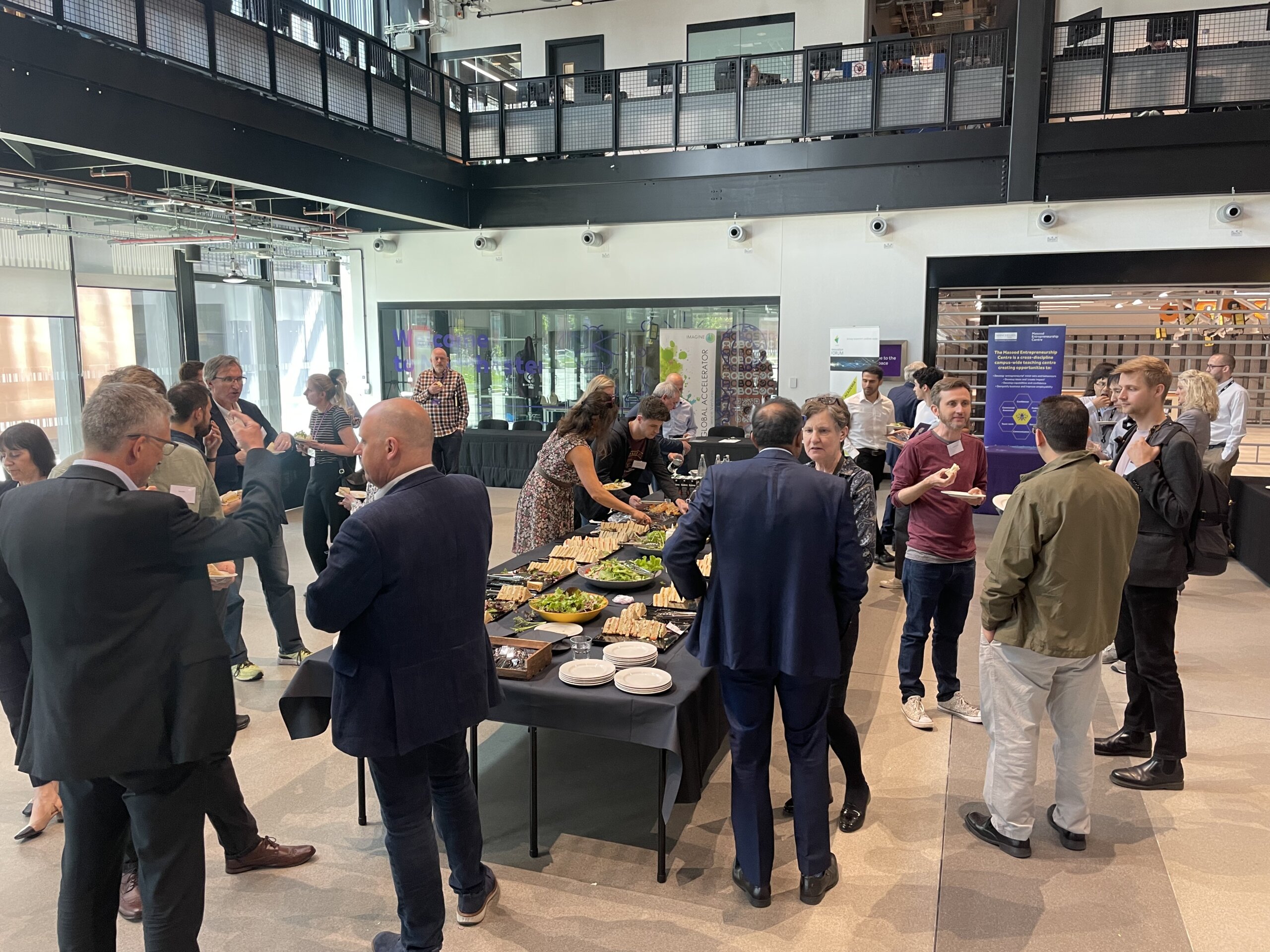
We look forward to holding more events like this across the faculties and schools in the near future. If you have any questions in the meantime, you can find the appropriate person here.



